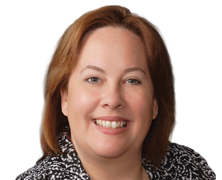In the 1970s, my family moved to Hawaii from Denver, Colorado. This move changed me. I was a pre-teen, thrust from living as a member of the dominant culture to being a cultural minority. Additionally, I was academically more prepared than my grammar school peers, yet I knew little about the islands and their rich history.
In Hawaii, the school was different from the public school in Colorado. The Hawaiian school was much smaller, religiously affiliated, with open-air classrooms and a great deal of diversity. There was one other transfer student in the school that year and we both had trouble adjusting. The school was led by a strong, dedicated, and innovative nun. She quickly saw that he and I were not fitting in. She developed a special curriculum for us that engaged us in the exploration of the Hawaiian history, culture, and ecology. Her dedication to inclusion helped me and my new friend become a part of the Hawaiian community.
Although neither of my parents had graduated from college, I was determined to attend. I decided that I would attend school on the mainland. Like many teenagers, I was excited to start anew and move away from home. I was prepared for many of the changes that going away to college would present, but I was not prepared to lose my father in my first year of college. As difficult as it was being a young woman who lost her father while being thousands of miles away from her family, I was blessed by the support I received from my teachers and the senior administrators. They saw me beyond the assertive co-ed seeking permission to take a late mid-term exam and connected with me. They listened when I struggled academically and moreover recognized the profound impact the loss of my father had on me. Their acts of compassion anchor me as a leader, teacher, and human being.
Today, as an educational leader, I often reflect on the gifts afforded to me by innovative and inclusive educators and leaders like the nun I met in Hawaii and the leadership I met in college. I also think of the experiences I had as an outsider while a student in Hawaii and again as a first-generation student in college. All of this ignited my passion for helping others gain access to education and to study and perform research in the areas of inclusive pedagogy and universal instructional design.
Each experience afforded me a new life lesson. In Hawaiian we have a saying, E komo mai, which means “Welcome, my house is yours.” I try to create classroom environments for E komo mai, to welcome students in and create a truly inclusive experience for them.
How has education affected your career?
Although I was a first-generation college student, pursuing an advanced degree was a goal I had since childhood. My own passion for learning has fueled my commitment to providing access to education for everyone who shares that dream, particularly the underserved.
What does it take to succeed and stay competitive in your position/field?
To stay competitive in higher education administration requires more than expertise in one’s academic discipline and even more than staying current in education policy. Colleges and universities are in an unprecedented time of change and regulation. In an increasingly competitive landscape, successful leaders understand their competition, monitor societal shifts, and assure that they have the right combination of team members to respond to change.







